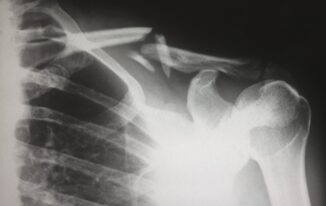
Sexual abuse is a traumatic experience that can have long-lasting effects on individuals and their families. This is particularly true in cases of Catholic sexual abuse, where victims often struggle to come to terms with the betrayal of trust and the impact on their faith.
In this blog, we will delve into the long-term effects of Catholic church sexual abuse on survivors and their families.
1. PTSD and Trauma
Survivors of Catholic sexual abuse often develop post-traumatic stress disorder (PTSD) and other trauma-related conditions. These can include nightmares, flashbacks, anxiety, depression, and difficulty regulating emotions. The effects of trauma can be long-lasting and may affect the survivor’s ability to function in daily life. Therapy and other mental health resources can help survivors manage their symptoms and cope with the trauma they have experienced.
2. Trust Issues
Following the trauma of sexual abuse, survivors may struggle with trust issues in personal relationships and institutions like the Catholic Church. The abuse has violated their trust and made it difficult for them to form close relationships or trust authority figures. Survivors may need to work through their trust issues in therapy or with the help of support groups.
3. Self-Blame and Shame
It is not uncommon for survivors of Catholic sexual abuse to blame themselves for the abuse they endured. This self-blame can lead to shame, guilt, and low self-worth. Survivors need to understand that the abuse was not their fault and that they are not responsible for what happened to them. Therapy can help survivors work through their feelings of self-blame and shame.
4. Relationship Problems
Survivors of Catholic sexual abuse may struggle in their relationships, including romantic relationships and relationships with family members. The trauma they have experienced can make it difficult for them to form healthy, intimate relationships. Survivors need to work through these issues in therapy or with the help of support groups.
5. Job Loss
Survivors of Catholic sexual abuse may experience significant challenges in maintaining employment due to the emotional and psychological toll of the trauma they have experienced. The impacts of abuse can manifest in various ways, such as difficulty concentrating, anxiety, depression, and PTSD, making it challenging to maintain focus and productivity at work. Additionally, survivors may need to take time off work to attend counseling sessions or medical appointments to address the effects of the abuse, leading to decreased productivity and potential job loss.
6.Substance Abuse
Survivors may turn to drugs or alcohol to cope with their trauma. Substance abuse can lead to addiction, which can cause a range of physical, emotional, and financial problems. Some survivors may feel ashamed or embarrassed to seek help for substance abuse, but it’s important to remember that addiction is a disease and not a moral failing. Treatment options for addiction can include therapy, medication, and support groups.
7.Suicidal Thoughts and Behaviors
Survivors of Catholic sexual abuse may experience intense feelings of hopelessness, shame, and guilt. These feelings can lead to suicidal thoughts and behaviors, especially if the survivor doesn’t receive proper support and treatment. It’s essential to take suicidal thoughts seriously and seek immediate help if you or someone you know is experiencing them. Suicide prevention hotlines and crisis centers can provide immediate support, and mental health professionals can offer ongoing care and treatment.
8.Health Problems
Survivors of Catholic sexual abuse may experience various physical health problems due to the abuse. These can include chronic pain, headaches, and gastrointestinal problems. Survivors may also be at increased risk of sexually transmitted infections (STIs) and other reproductive health issues.
Survivors need to receive medical care to address these issues and any mental health issues that may be contributing to physical symptoms. Medical professionals can provide a range of treatments and referrals to specialists as needed.
9.Financial Struggles
Catholic sexual abuse survivors may face financial hardship, often due to the long-lasting impact of their trauma. The abuse can make it difficult for them to focus on their work, leading to missed work days, reduced productivity, and job loss. In addition, survivors may need to spend money on therapy, medical treatment, and other mental health resources, adding to their financial burden.
10.Loss of Faith
For many survivors of Catholic sexual abuse, their faith can be deeply impacted by their trauma. The abuse they experienced at the hands of those they trusted in positions of religious authority can shatter their belief in a loving God and create a crisis of faith. It can be a difficult journey to reconcile the pain and betrayal with their religious beliefs. Some survivors may feel anger, confusion, or resentment toward their faith.
The Journey Is Hard, But It Gets Better
The long-term effects of Catholic sexual abuse on survivors and their families are far-reaching and devastating. Survivors should consult a sexual abuse lawyer to receive the legal support required to bring the perpetrators to justice. It is also critical for the Church to take responsibility for the harm that has been done and to take steps to prevent further abuse from occurring in the future.



